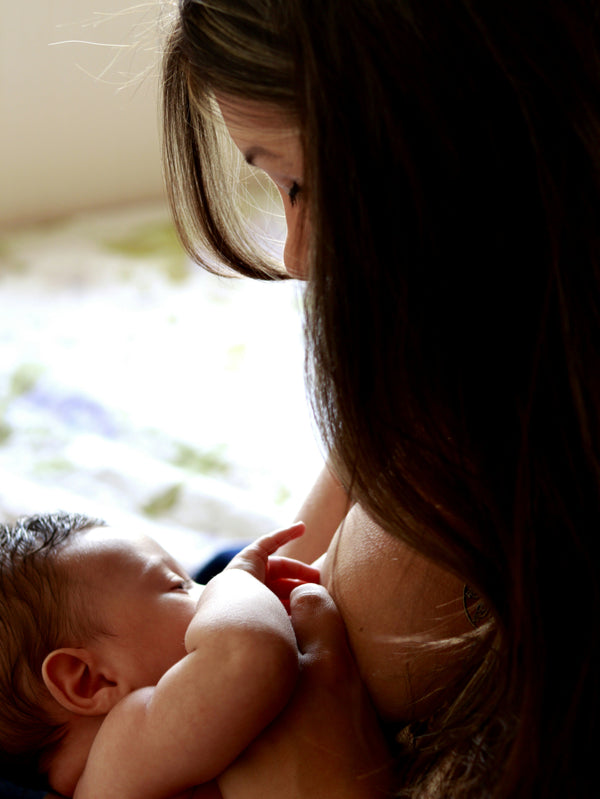Now that your baby is here, you are a family and your baby needs to feel the same love and protection that you gave her or him while she or he was inside you. Trust your instincts – you will find that you are ‘ready-programmed’ for parenting.
Article
Mind, Body, Baby – Postnatal
Posted on
Mind
Try not to put too much pressure on yourself. You have just been through a life-changing experience, so you may need a little time to settle down. If you are ready to go out with your new baby, then do so, but listen to your body and do whatever feels right for you.
As you begin to recover after the birth of your baby, you may notice further changes in your body and your feelings.Try to give yourself time to adjust. Rest as much as you can and continue to eat a healthy, balanced diet, especially if you are breastfeeding. Once paternity leave is over for your partner and you are alone with your baby, things can sometimes seem a little overwhelming. Try to talk to friends and family and accept any offers of help – or simply ask for it if it is not volunteered.
Babies are exquisitely sensitive to their environment at birth and can detect smells or chemical signals that their parents emit, but are quite unaware of. Pheromones are manufactured in our skin and babies are programmed to respond to them so that they can tell when their parents are calm and relaxed, or anxious and stressed. This may be why some very stressed mothers seem to have particularly fretful babies – one anxiety feeds another.
Coping with feeling low
Early parenthood can be a bumpy ride. One minute you might feel euphoric, the next hopeless and overwhelmed. Most mothers experience a short period of feeling low, but bounce right back, but some find things more difficult. However, prompt help can make a huge difference and life can become much happier again.
If you did not fall in love with your baby the instant that you saw her or him, don’t blame yourself. The bonding process doesn’t happen instantly for every mother, and if you had a difficult labour and birth it may be that you need time to recover before you are able to connect properly with your baby. But don’t worry – it will happen.
The ‘baby blues’ are extremely common and affect 85% of all mothers shortly after birth. In fact, this phenomenon is so common that midwives and health visitors almost expect to see some signs of low spirits on day three or four after the delivery of the baby. Baby blues are not the same as postnatal depression though, these blues are short-lived and are primarily caused by fluctuating hormones, so they usually start just as your milk comes in. You are probably at your most tired and uncomfortable at this point and it may seem off that just when you expected to feel euphoric, you suddenly feel tearful and overwhelmed. Baby blues usually resolve themselves with a few weeks, when your hormones start to settle down. For some women though, the blues do not go away but deepen into a depression that typically reaches its peak about 10 weeks after delivery. Midwives and health visitors are trained to spot signs of PND and when they come to visit you at home they will take care to find out about all aspects of your recovery after your baby’s birth.
Body

Your body has been through a momentous event and has probably worked harder than it ever has done before. Now is the time to rest and allow it to heal. In the immediate period after delivery you may experience a number of common after-effects. The process of labour and giving birth stimulates your body to release nature’s natural painkillers, endorphins, and for a while the elation of meeting your baby for the first time may have taken your mind off any aches and pains. However, it is common to feel rather battered after delivery is over, particularly once the tiredness sets in. Take things gently. It is important to realise that although many of the changes your body went through when you were pregnant will come to an end quite abruptly, it will take a while for it to return to its pre-pregnancy state.
Postnatal discomforts
No matter what kind of labour and delivery you went through, you are bound to experience a number of discomforts such as after-pains, perineal tenderness as well as increasingly heavy and aching breasts when your milk starts to come in. Although these symptoms are absolute normal, talk to your midwife or doctor if you are finding it especially hard to cope.
-
Your perineum
You will probably find that your perineum is most sore in the first three days after delivery, especially if you have had stitches. Cool packs and arnica cream may help, and if you take a bath, you can try adding a cup full of sea salt to assist healing and/or a few drops of pure lavender oil diluted in a carrier oil or cup of milk. We have a fantastic lavender based bath oil as part of the Zita West postnatal range. And we’ve a soothing balm to help perineal repair as well. -
After a caesarean
It will take longer to recover from a Caesarean section than vaginal delivery, but you should be able to get out of bed soon after your operation.It’s a good idea to wear loose clothing, cotton underwear and to clean and dry the wound daily, and try to avoid wearing clothes that may rub. Allow the scar to be exposed to the air from time to time, and avoid using scented soap, bath or shower products and always dry it carefully. -
After-pains & bleeding
You will also have some postnatal bleeding, which may be heavy at first and may last 10 days or more, but will gradually lessen. Your abdomen will seem soft and flabby after so many months of being stretched, and if you are having your second or subsequent baby, you will have after-pains that will feel like mild contractions. Try to welcome the pains because they are helping your uterus contract and return to its normal size and shape. -
Your bladder
Your bladder will have undergone some stress during labour and delivery too, and you may find that you have difficulty in passing urine. The physical strain of labour may also make your bladder more susceptible to infection, but more commonly you may have some stress incontinence and leak urine when you cough, sneeze or laugh. -
Your breasts
Immediately after delivery your breasts will contain colostrum, the nutrient-rich, yellow liquid that is full of antibodies to protect your baby. Your breasts will be soft at first, but within three or four days your milk will start to come in and they may feel quite hard, hot, swollen and tender. You can try some complementary remedies and cooling packs that may help, but the best solution is to feed your baby as much, and as often, as you can.
Baby
Some babies sleep easily after meeting their parents and greeting the outside world for the first time, while others find it harder to settle. Your new baby’s first few hours will be full of ‘firsts’ and it will help all of you if you can try and understand how she or he may be feeling.
If you had been happily living in a warm, moist environment where you were never hungry or bothered by too much light or noise, how would you feel if you were expelled from it, squeezed through a twisting, tight tunnel and out into cold, dry air – then bombarded with light, noise and unfamiliar sensations? It’s no wonder that so many of them seem a little distressed! Once your baby has been placed on your tummy or breast, gently held and softly spoken to in a voice they can recognise, perhaps they will begin to relax.
Every baby’s brain is working hard at birth, absorbing the nature of their new surroundings and processing the information that their eyes, ears and skin are telling them about their parents and other individuals. However, some babies seem more able to cope with these sensations than others and learning to recognise what your baby can tolerate is one of the first challenges of being a parent. Spending quiet time with your new baby, holding them skin-to-skin, looking into their eyes and smiling and talking softly is the best way to help them adjust to life outside your womb.
Further reading
-

6 Common Breastfeeding Myths Debunked
Whether you are a first-time mother or adding another little one to your family, it is easy to feel confused... -

Sex After Birth: What to Expect and Common Questions Answered
Bringing a new life into the world is a transformative experience, both physically and emotionally. Understandably, many couples have concerns...


